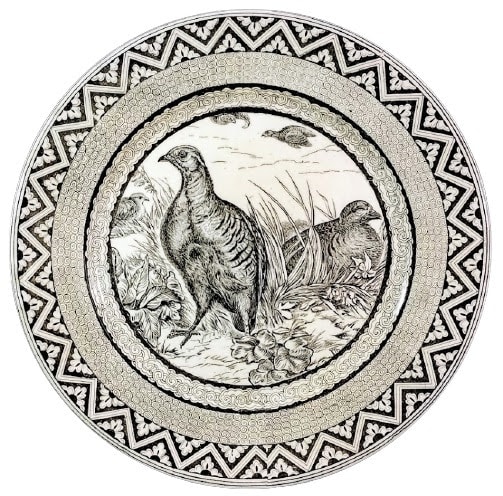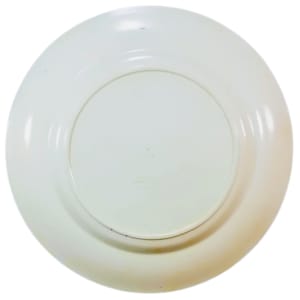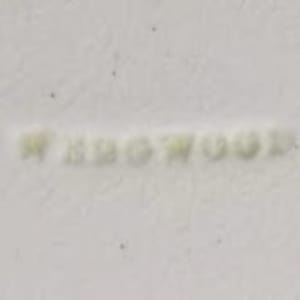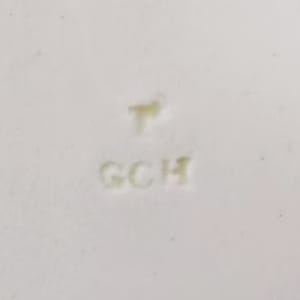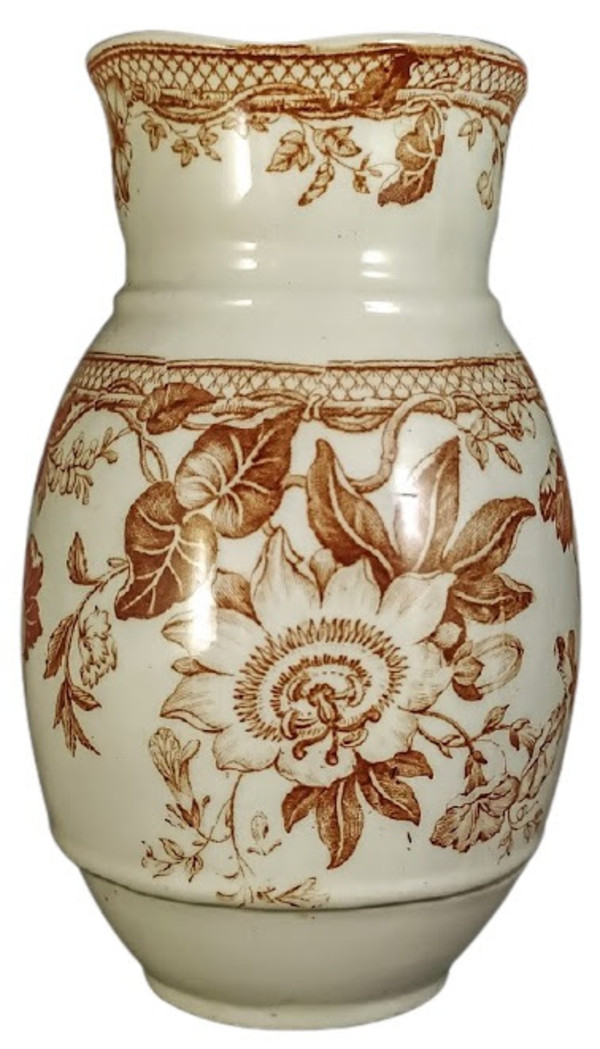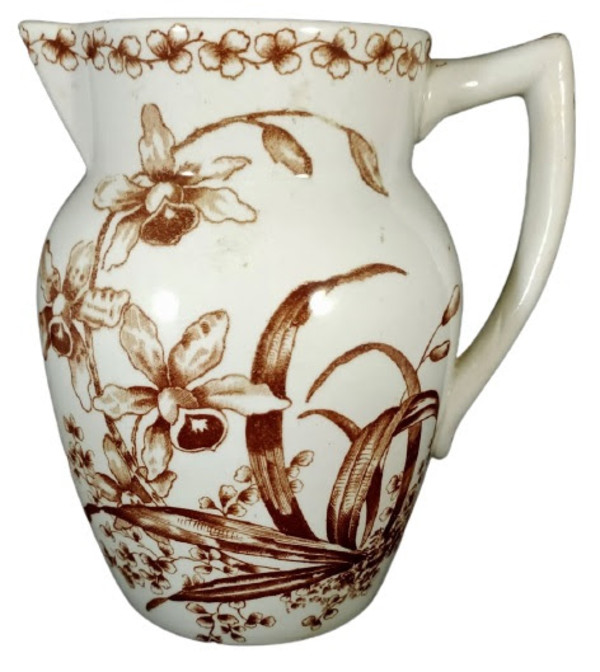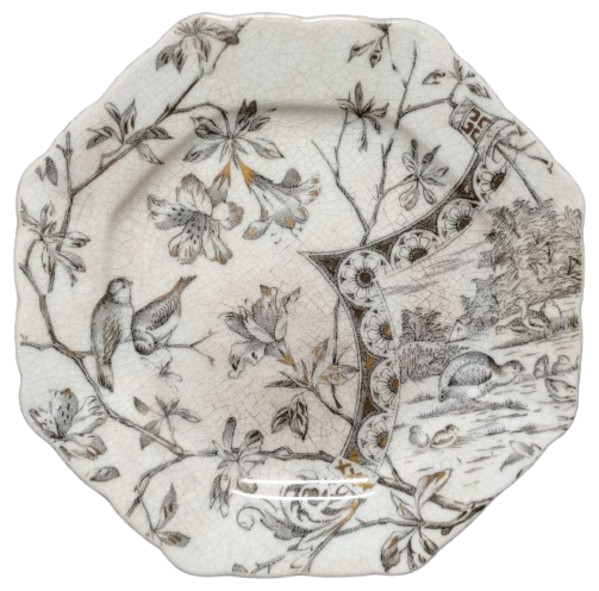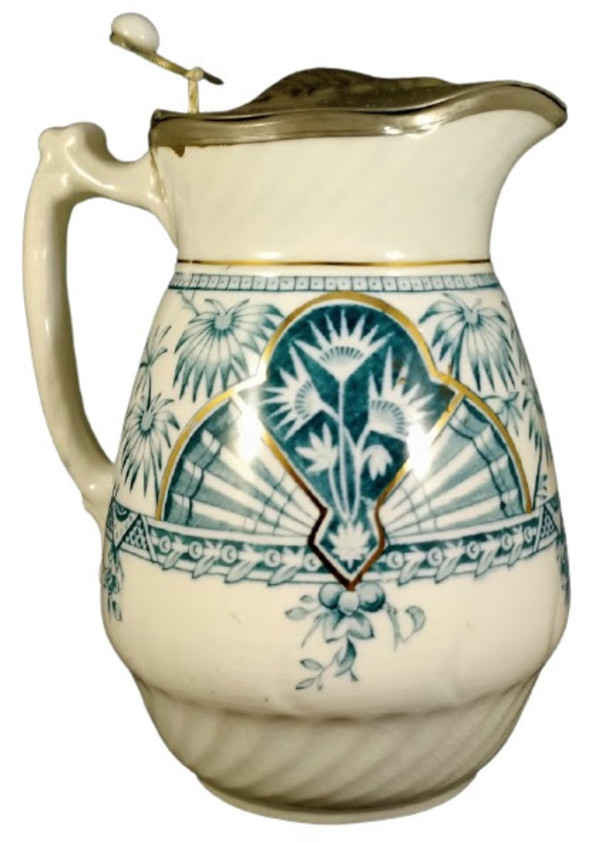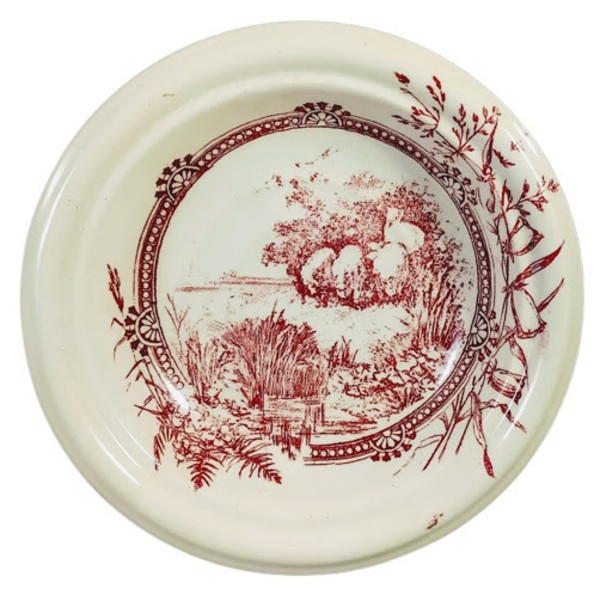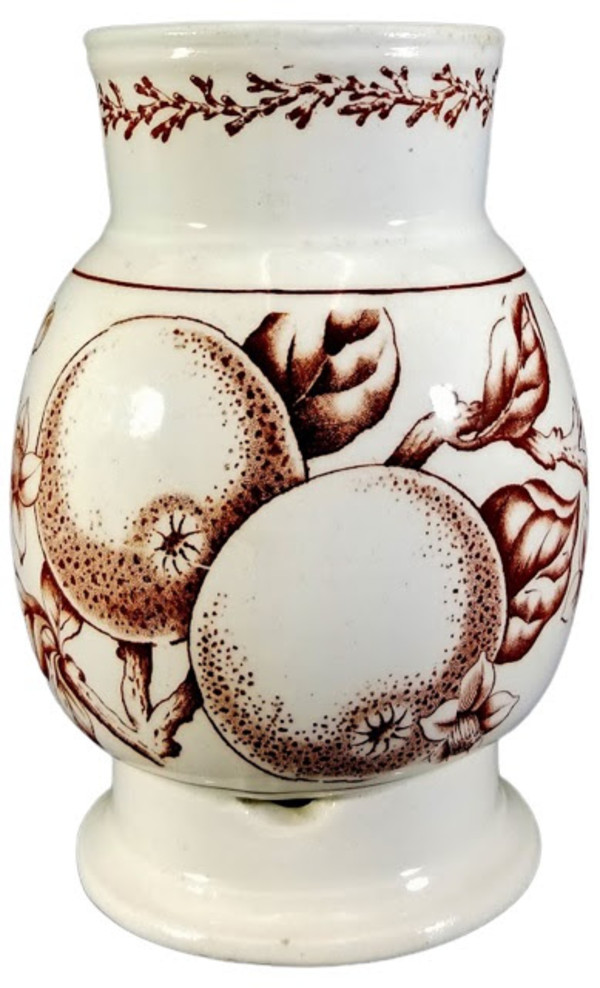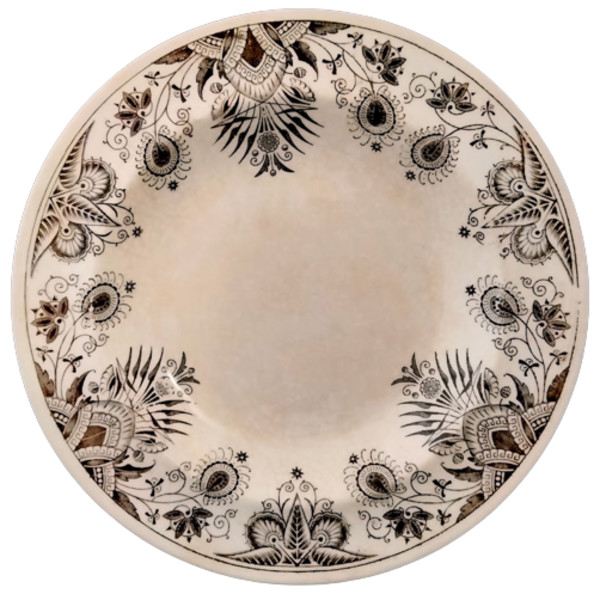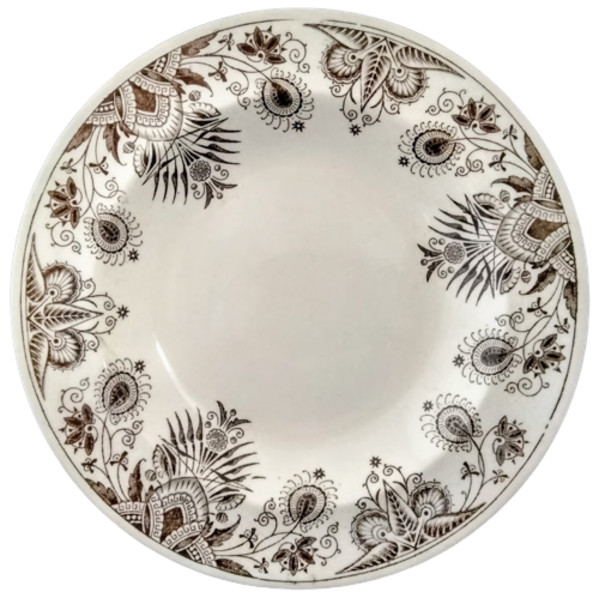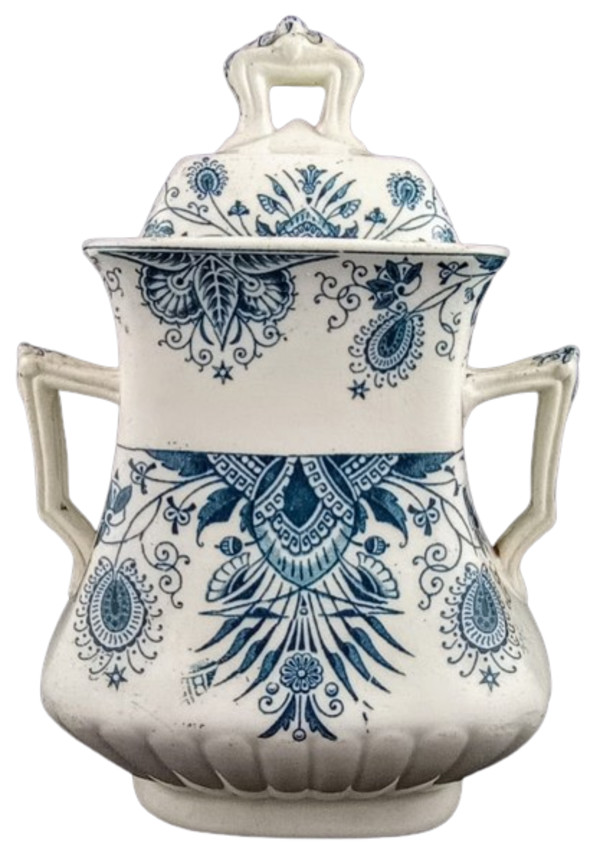- Josiah Wedgwood
- Unnamed (Partridges), 1879
- Earthenware
- 10 x 10 in (25.4 x 25.4 cm)
-
Not For Sale
Plate, 10 inches diameter. Brown transfer. Impressed maker's mark for Josiah Wedgwood. The impressed three-letter date code indicates a production date of 1879. In this pattern a male partridge stands in front of a female lying in the grass. Another partridge is seen in the left distance and in the sky above are two more partridges. Various grasses and leaves surround the birds. This particular border has been used by Wedgwood on a number of series and is know as the Mikado diaper pattern.
Josiah Wedgwood was born in Burslem, Staffordshire, on July 12, 1730, into a family with a long tradition as potters. At the age of nine, after the death of his father, he worked in his family's pottery. In 1759 he set up his own pottery works in Burslem. There he produced a highly durable cream-colored earthenware that so pleased Queen Charlotte that in 1762 she appointed him royal supplier of dinnerware. From the public sale of Queen's Ware, as it came to be known, Wedgwood was able, in 1768, to build near Stoke-on-Trent a village, which he named Etruria, and a second factory equipped with tools and ovens of his own design. At first only ornamental pottery was made in Etruria, but by 1773 Wedgwood had concentrated all his production facilities there. During his long career Wedgwood developed revolutionary ceramic materials, notably basalt and jasperware. After Wedgwood's death in Etruria on January 3, 1795, his descendants carried on the business, which still produces many of his designs.
- Subject Matter: Aesthetic (Nature)
- Collections: Aesthetic Transferware, Josiah Wedgwood
